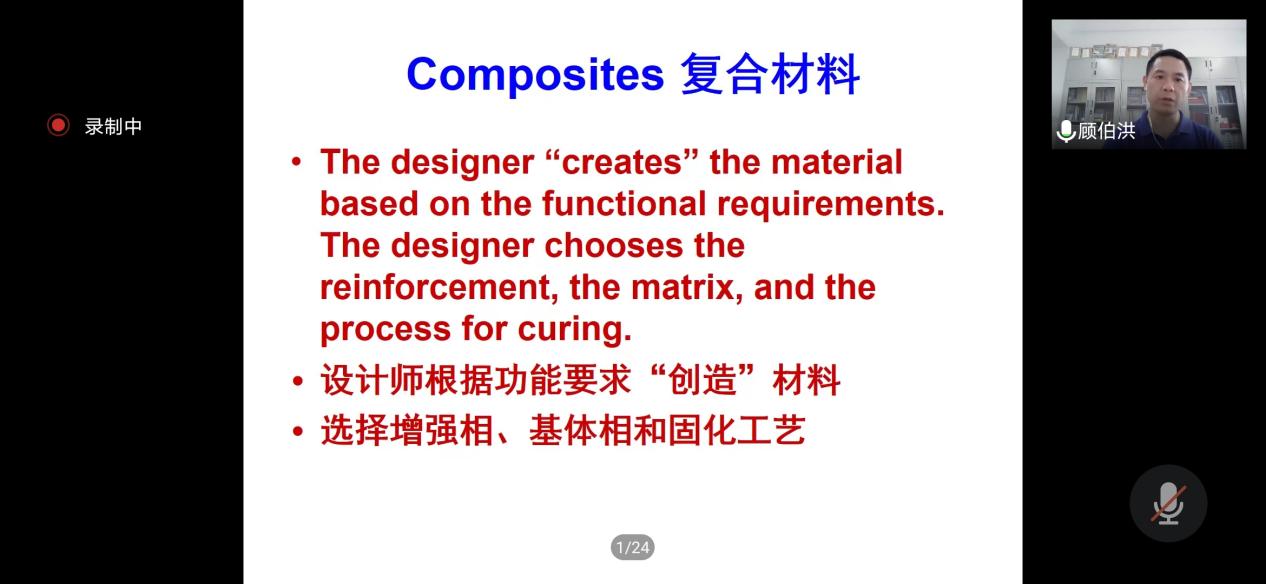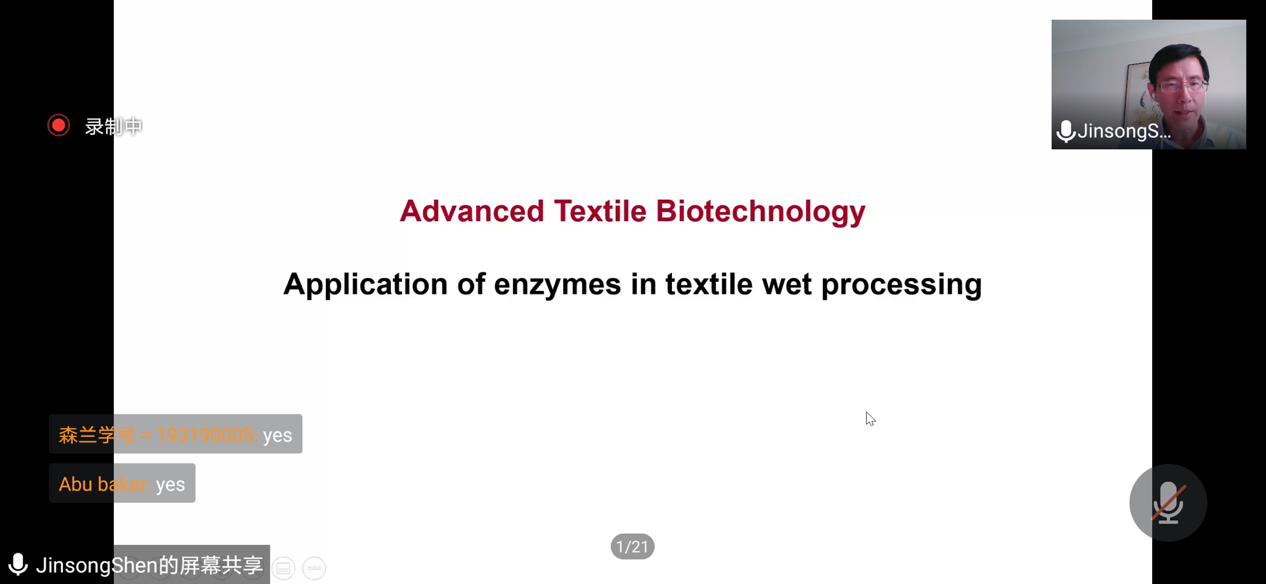2021 Shanghai International Textile Graduate Summer School Teaching Briefing
NO. 5 July 13, 2021 email: itgss2021@126.com
2021 organizing committee of Shanghai Textile Graduate International Summer School, Writing: Wang Yichao,Translation: Li Shiyun
On July 14, we are honored to invite Prof. WANG XUngai from Deakin University, Prof. XU Yingjiao from North Carolina State University, Prof. YU Chongwen from Donghua University, and Prof. SHEN Jinsong from De Montfort University to show the charm and marvel of the textile industry from a very professional perspective for us.
The second class on the topic of odour or smell related properties of fibres and textiles was given by Professor WANG Xungai. Professor WANG outlined the effects of odor in daily life, reflecting the importance of researching on the properties related to the odour or smell of fibres and textiles. Then Professor WANG introduced two existing methods to test odor and also showed an odour detection system developed by his group, which has a bright prospects and could be applied to a wide range of fibers and textiles with accurate results.
The next lecture is the second class on the topic: Consumer Behavior and the Textiles Industry. Professor XU Yingjiao raised the consumer decision process model based on the decision-making process of consumers. This model consists of seven stages: need recognition, searching for information, pre-purchase evaluation alternatives, purchasing, consumption, post-consumption evaluation and divestment.
Professor YU Chongwen dispersed the knowledge about the simulation of fiber movement during drafting processing. The lecture was mainly divided into two parts: simulation of fiber random arrangement in the sliver or yarn and fiber movement in drafting processing. The simulated yarns can directly describe how fibers arrange in a yarn, and can further describe the effect of geometrical parameters on yarn unevenness. For fiber length, yarn limit irregularity mainly depends on average fiber length, and is slightly influenced by CV% of fiber length by applying its distribution into the simulation. What’s more, CV% of fiber fineness has higher effect than mean of fiber length on yarn limit irregularity.
Professor SHEN Jinsong gave the second class of the series course: Innovative Technology for Textile Functionality and Sustainability. This time Professor SHEN guided us to have a brief understanding of the advanced textile biotechnology and also emphasized the applications of enzymes in textile wet process. The traditional wet process has the disadvantages of high energy consumption and pollution. Instead, the application of enzyme can reduce the energy consumption, water consumption and also the pollution level. Enzyme is a kind of biocatalyst. In the textile industry, it is safe and controllable, and has mild reaction condition. Its reaction could be accelerated and it can replace the irritant chemicals. In addition, it is biodegradable and can be recycled.





